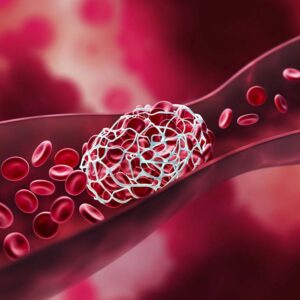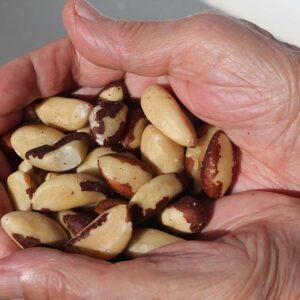
Germ Causes Beautiful, Radiant Skin
Dear Living Well Daily Reader,
“Wait… what?!? You want me to put this where?!”
A while back, I had the opportunity to try a brand-new type of probiotic.
If you’re not familiar with probiotics, these are the good bacteria that keep your body balance and boost your overall health. Typically, probiotics are taken orally to help strengthen the gut.
And that’s why, up until I tried this revolutionary new type, the only probiotics I’d ever experimented with were either food, drink or some type of supplement.
So when I found out exactly where I was supposed to put this probiotic, I was shocked.
You see, this new probiotic, called Mother Dirt AO+, restores bacteria to a place you try very hard to keep clean — your skin. And not just the skin of your hands or body. This bacterium is even beneficial for your face.
You may be thinking how can bacteria be good for my face? Don’t I wash my face and hands to get rid of dangerous bacteria?
That’s exactly what I thought.
And then I tried it.
My skin has never been clearer, suppler, better balanced or younger looking than it has been since using the product for only month.
And that’s why I’ve invited the team from Mother Dirt here to provide you with good information on the origins of their unique products, how they’re best used and what sets them apart from other cleansers and skin care products. Plus, they will share the unusual story of how this amazing bacterium was discovered.
Take it away, Mother Dirt…
Natalie: Thanks for taking the time to answer our questions.
How are these products different from normal cleansers, shampoos and skin care products? What really sets them apart or makes them unique skin care products?
Mother Dirt: Just like our gut relies on good bacteria and probiotics, our skin relies on good bacteria to help us be healthy as well. This elaborate ecosystem is called the skin biome, and we’ve created the first and only line of skin care products that nurture it.
Our AO+ Mist contains a live ammonia-oxidizing bacterium (AOB) that once existed on our skin naturally but have since been wiped away with harsh chemicals in our soaps and personal care products. AOB consume the ammonia in your sweat (which is the irritating component) and convert it into nitric oxide. These bacteria live and are present in all living things in nature, and keep plants not just alive, but thriving. They do the same thing for our skin.
Our shampoo and cleanser do not contain AOB, but they were formulated to be “biome-friendly” and nurture the good bacteria, whereas other products strip it away. They are also all preservative-free, which is why they have expiration dates!
N: So how was this discovered? Is there a story behind how these products were developed?
MD: There’s a great story behind it!
About 15 years ago, our founding scientist, David Whitlock, was on a date with a woman who loved horseback riding. She asked him why her horses rolled in the dirt — and David couldn’t find a good answer. He couldn’t let the question hang, so he set out on a quest to impress her and discover the answer. He even created a bioreactor in his bathtub to culture bacteria from soil samples!
There, in the dirt, he discovered AOB. Ever since he has dedicated his life to studying this incredible bacterium. (He didn’t get the girl in the end, but he got the AOB instead — so it’s still a happy ending!)
N: That’s too bad about his lady but good that he was inspired to make such a great product. Did he also discover why we need skin probiotics?
MD: We’ve really messed with our skin microbiome over time as we’ve added more and more harsh chemical products into our personal care routine, washing so much of our good skin bacteria down the drain. Skin issues are on the rise: Over 80 million people in the U.S. alone suffer from acne, one in six children has eczema and over 50% of adults claim to have sensitive skin. Just like taking probiotics brings your gut microbiome back into balance and improves digestion, misting AOB on your skin brings your skin back into balance.
N: Cool. So which strain (or strains) of bacterium is in Mother Dirt products? Why was it selected?
MD: We have just one strain of bacteria, ammonia-oxidizing bacteria (AOB). AOB consume the irritating component in human sweat — ammonia.
In nature, everywhere ammonia exists, AOB live too — except for on human skin. (Though in nonindustrialized places like the Amazon, where harsh soaps and cleansers are uncommon, people still have AOB on their skin.)
The goal of the AO+ Mist is to bring back a natural balance to the skin microbiome, which can lead to clearer skin, improved oily and dry areas, and help reslove sensitive skin issues like irritation and rough patches.
You may be familiar with some common bacteria in gut probiotics, and you might be surprised that we don’t use any in our skin probiotics. But the bacteria that are good for your skin are very different than the bacteria that are good for your gut! Think about how different the environments of your skin and your gut are.
We’ve been careful to select a bacterium uniquely suited — and necessary — to the skin microbiome.
N: Thanks so much for answering our questions. This has been super informative.
To discover more about Mother Dirt or the AO+ Mist, click here.
Live well,

Natalie Moore
Managing editor, Living Well Daily
P.S. Do you have questions about other types of probiotics? Ask me! nmoore@lfb.org
Written By Natalie Moore
Natalie Moore is a dedicated health researcher with a passion for finding healthy, natural, and science-based solutions. After a decade of direct healthcare experience in western and natural medicine, she was involved in public health research before joining Living Well Daily.
View More Free Articles
Take the SHORTER Path to Dramatically Better Health
Are you tired of fitness gurus preaching the virtues of 5 AM workouts and pushing Olympic-level training regimens? Their narrative can feel exhausting and entirely unattainable. But before you toss in the towel completely, I’ve got news that might just put a spring back into your step. A groundbreaking new study reveals that the key...
Unexpected Perks of Your Coffee Habit Revealed!
We all know that the first cup of coffee in the morning can FEEL like a lifesaver. But what if it might actually BE saving your life? A groundbreaking new study suggests that your daily coffee habit could be protecting you from not just one but multiple chronic diseases. Let’s pour over this fascinating research…...
The TRUTH About Diabetes Drugs and Brain Aging
You’ve probably seen the gushing headlines… Most say something like, “Common diabetes drug protects the brain against aging!” And let’s face it, that sounds fantastic. After all, who doesn’t want to keep their brain young and in tip-top shape? The headlines refer to the results of a new study that suggests the widely prescribed type...
Hidden Smartphone Danger Puts You at Risk
Remember when we thought cell phones were just something for young folks to obsess over? Back when we were convinced they were nothing more than a passing fad? Well, times certainly have changed. Now, most people… including many of us older folks… have jumped on the smartphone bandwagon. Heck, some of us are practically as...
Preserve Your Mobility with “Agile Aging” Exercises
Aging has a way of humbling us. You lose hair where you want to keep it—and often end up growing it where you don’t. With every passing year, your eyesight fades, and your waistline expands. And as your once quick pace begins to slow, you fear developing the dreaded “senior shuffle.” But here’s the thing....
Yes, Lazy Saturday Lie-Ins Can BOOST Your Health
Are you burning the midnight oil during the week and catching up on sleep on weekends? Well, I’ve got some news that might help you feel less guilty about those lazy Saturday mornings. A new study suggests that weekend lie-ins might be doing far more than just helping you feel refreshed. Experts say they could...
Mailbag: 7 Hidden Culprits Behind Your Weight Gain
“Why am I gaining weight, even though I am watching what I am eating?” – Battling the Bulge Dear Battling, Gaining weight when you’re not trying to is frustrating. And it just gets worse as we age… often regardless of our diet. The truth is that various factors can promote weight gain even when you’re...
Popular Artificial Sweetener Linked to Dangerous Heart Risk
Remember when erythritol was the darling of the health food world? Well, this popular sugar substitute might not be as sweet a deal as we were led to believe… A shocking new study reveals a dark side to this widely used artificial sweetener. It turns out erythritol is associated with a dangerous—and even deadly—heart risk....
Cracking the Code on Chronic Inflammation
Inflammation and obesity are the evil tag team at the heart of nearly every major disease we face—from diabetes to obesity. What starts as a normal, healthy process to fend off dangerous invaders can quickly fan into the flames of chronic inflammation… and that includes in your gut. The trouble is almost no one has...
Dreaming of Better Sleep? Your Gut Holds the Key
Do you toss and turn at night? If so, you’re not alone. In fact, if you’re a senior over 65, you join nearly 17 percent of your peers who ALSO struggle with poor sleep quality. But science has uncovered a natural supplement that not only could help you catch more Z’s but can also give...









